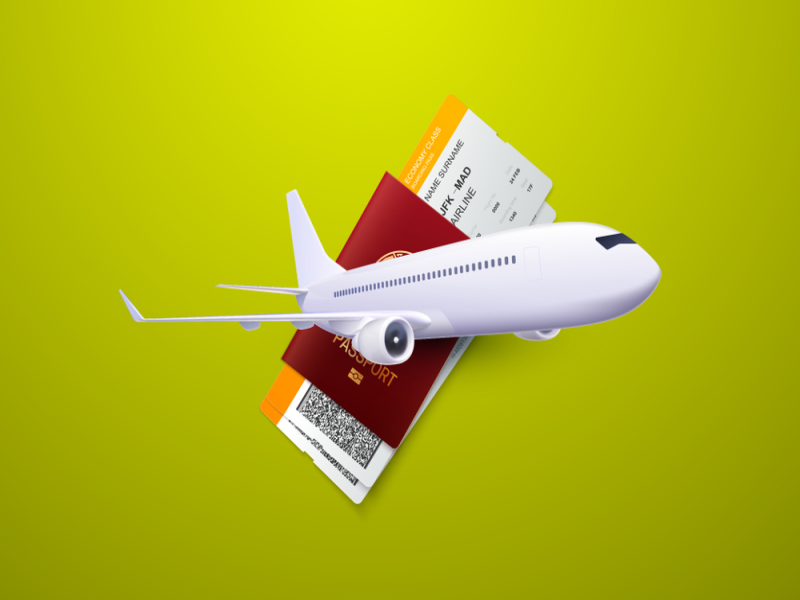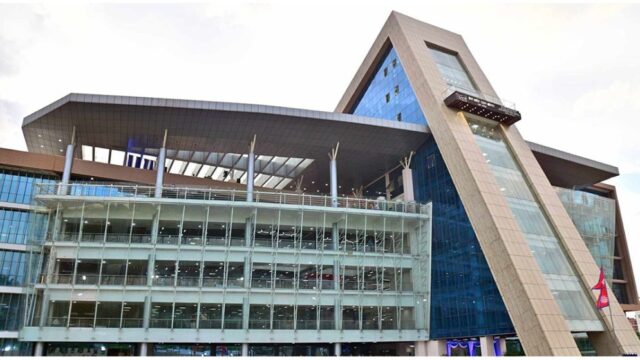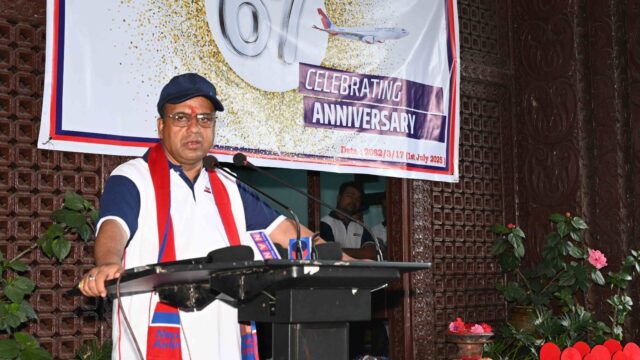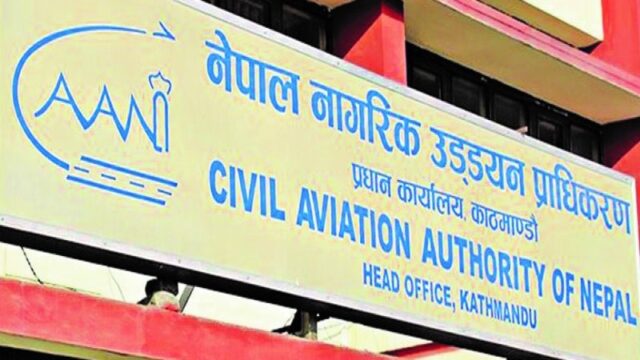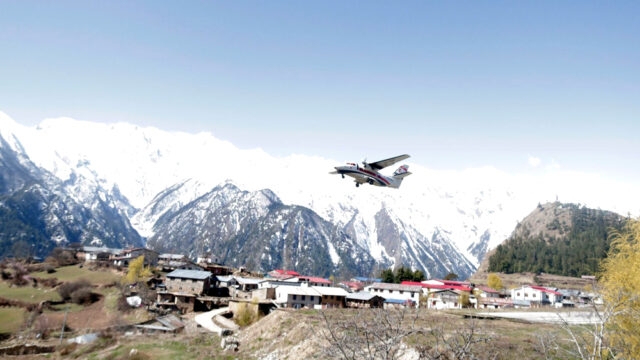Despite strong opposition, the government has continued to impose a value-added tax (VAT) on international air services in the upcoming fiscal year’s budget, significantly increasing the cost of air travel, particularly for foreign tourists visiting Nepal.
Tourism industry experts are concerned that the government’s target of attracting 1.6 million tourists next year may be unattainable due to the heightened costs making Nepal a less competitive destination.
Due to the VAT, many tour and travel agents have begun canceling air ticket bookings. President of the Nepal Association of Tour and Travel Agents (NATTA), Kumarmani Thapaliya, criticized the government for imposing VAT on airfares without consulting the business community. He noted that this move has put tour and travel agents in a dilemma about whether to remain in the industry.
Thapaliya highlighted the global uniqueness of Nepal’s practice. “Adding a 13% tax to air services is substantial. Tourists are now choosing other destinations, as it costs $1,000 less to fly to New Delhi from America than to Nepal,” he explained. “That $1,000 is sufficient for a visit to India, and similarly, tourists are increasingly opting for Vietnam.”
Thapaliya compared the situation to dining in a restaurant, which incurs VAT, unlike meals on a plane. “This contradicts international norms and risks damaging diplomatic relations and our tourism sector,” he said.
Recently, the Chinese Embassy warned that it would consider canceling flights to Nepal if the VAT decision is not reversed, highlighting the potential impact on tourism relations. Thapaliya argued that the government has no right to hinder tourist arrivals and harm businesses that have seen significant investment.
He added that Nepal’s hospitality sector, capable of accommodating 3.5 million foreign tourists, is now under threat. NATTA has filed a lawsuit against the VAT imposition, citing a similar reversal in Bangladesh as a precedent. “We have no choice but to fight this decision,” he stated.
Thapaliya warned that the continued imposition of VAT could displace travel and tour businesses, and if foreign agencies take over, it would result in job losses for Nepali people. “We are in a ‘wait and see’ situation. If the demand is not addressed before the budget implementation, we may have to make a difficult decision about continuing our business in Nepal.”
The VAT has also made air tickets more expensive for Nepalis working abroad, leading to a potential shift of business to India. “If travelers buy only the Kathmandu-Delhi ticket from Nepali agents and purchase the rest online, our local businesses will suffer, and expected tax revenues will not materialize,” Thapaliya lamented.
Indu Ghimire, Joint Secretary of the Ministry of Tourism, acknowledged the issue and mentioned that they are coordinating with the Ministry of Finance to reconsider the VAT on air services. “We need to determine the impact of VAT on air ticket sales. Once we have the data, we can present a factual case to the Ministry of Finance and the Prime Minister for reconsideration,” she said.
Ghimire stressed that any decision should be based on accurate data. “It was not just that the government imposed VAT on air services without facts,” she added. The tourism ministry is awaiting detailed sales data to facilitate a well-informed discussion with the government on the potential impacts and the way forward.
